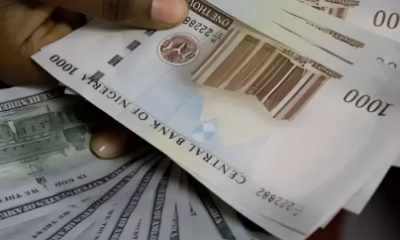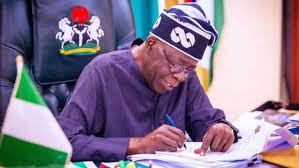While Nigeria’s Pension Fund Assets leaped from N5.30 trillion in December 2015 to N6.16 trillion in December 2016, its purchasing power, real rate of return and relevance as a buffer for future retiree’s remains a major topic of debate for industry observers.
In a report made available to National Daily by Kingsley Mbah, Sloan Fellow MBA Graduate 2017, the purchasing power of future pensioners is significantly threatened by high inflation rates and unimpressive returns on their Retirement Savings Accounts (RSAs).
He stated that the exceptionally high contagion risk in Nigeria’s pension industry stems from the nationalistic standpoint of Pencom’s policies. “Specifically, pension fund custodians (commercial banks) are domiciled in a financial services system that is remarkably exposed to a volatile Oil and Gas industry.”
According to him, with Nigeria being an import driven economy, devaluation of Naira would always erode the purchasing power of all pension beneficiaries.
He stated that as at June 2016, over 97% of total pension assets were invested locally. “Consequently, the purchasing power of the N5.729 trillion pension assets (as at June 2016) was eroded by 75% following the devaluation of Naira over the past twelve months.”
“Viewed differently, the total pension assets of N6.493 trillion as stated in Pencom’s most recent report (April 2017 report) would have been worth $32.467 billion (N200/$1) instead of $18.553billion (N350/$1) if the Naira was stable over the past twelve months.”
He explained that the PenCom monthly report gave the total pension fund assets as at March 2017 as N6.415 trillion, of which N4.875 trillion (76%4) was invested in Government Bonds and Treasuries.
ALSO SEE: N40bn double pay: SERAP welcomes Saraki’s move to stop receiving pensions
“Assuming, Nigeria faces a rating downgrade to “below investment grade status”, about 76% of the aggregate pension assets portfolio would automatically become junk bonds.”
He said if the country is faced with a severe credit crisis today, several people would lose their jobs and their pension assets would be significantly depleted in value. “Any attempts to resuscitate the economy through expansionary monetary policies would exacerbate inflation and further weaken the purchasing power of pension assets – thereby creating a double whammy impact.”
Mbah recommended that PenCom collaborates with the Central Bank of Nigeria (CBN) to dollarize a portion of the total pension assets without recourse to existing foreign exchange windows.
He also recommended policy initiatives such as; right to “purchase a percentage” of excess crude oil dollars from CBN, authorization of PFA’s (under the supervision of CBN and Pencom) to engage in asset swaps with potential foreign investors in Nigeria’s ECM and DCM, authorization to engage in currency swaps with foreign investors, right of first refusal on dollar proceeds that emanates from non-oil sectors dominated by pension fund investments etc.

 Business1 week ago
Business1 week ago
 Entertainment6 days ago
Entertainment6 days ago
 Entertainment3 days ago
Entertainment3 days ago
 Latest1 week ago
Latest1 week ago
 Comments and Issues6 days ago
Comments and Issues6 days ago
 Business6 days ago
Business6 days ago
 Comments and Issues6 days ago
Comments and Issues6 days ago
 Health1 week ago
Health1 week ago












